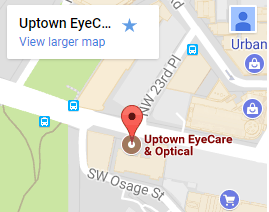A good contact lens fit starts with a thorough eye exam to ensure the most up-to-date prescription and rule out any pre-existing conditions that could interfere with contact lens wear.
We will determine the best fitting lens based on your lifestyle needs and the shape and health of your eye. In most cases, you’ll have the opportunity to try lenses on the same day as your exam. You can even go home with a few samples before making a final decision.
We follow up the initial fitting and then make any necessary changes in fit or materials to get you the best possible fit. We teach all our patients proper contact lens care and also possible consequences if proper care is not taken. Then we continue with long-term follow-up to monitor the condition of the lenses and to ensure that proper hygiene is being maintained.
Advances in contact lens design and materials have made contact lens wear a clear, comfortable option for many people requiring vision correction. Our contact lens services stress maintaining eye health for many years of comfortable and healthy contact lens wear. Our doctors have extensive training and experience in prescribing most types of contact lenses, including:
- Soft or Gas Permeable
- Toric for Astigmatism
- Extended Wear Contact Lenses
- Fashion and Custom Prosthetic Color Lenses
- Bifocals / Multifocal – Soft or Hard
- Contacts for Irregular Corneas / Specialty Contacts
- Scleral Lenses
- SynergEyes – Hybrid Soft/Hard Lenses
- Corneal Refractive Therapy Lenses (CRT)
If you wear disposable lenses, you’ll enjoy our streamlined annual contact lens check and competitive prices on an annual supply of contact lenses. Our patients who have an insurance vision benefit only every two years consider this service a great value.
For new fits, we help you decide which would be better for you – gas-permeable or soft contacts – and instruct you on lens care and handling techniques. Our doctors are trained to fit contacts for those with astigmatism, those over age 40 who need reading glasses (multifocal contacts), and those with irregular corneas (keratoconus, pellucid degeneration, post-surgical corneas, and other corneal pathologies).
Solving contact lens problems requires time and expertise. We use special exam techniques to find subtle contact lens-induced problems before they prevent you from wearing your contacts. We take the time to discuss wearing schedules, solutions, and other factors that may be affecting your comfort or clarity.



